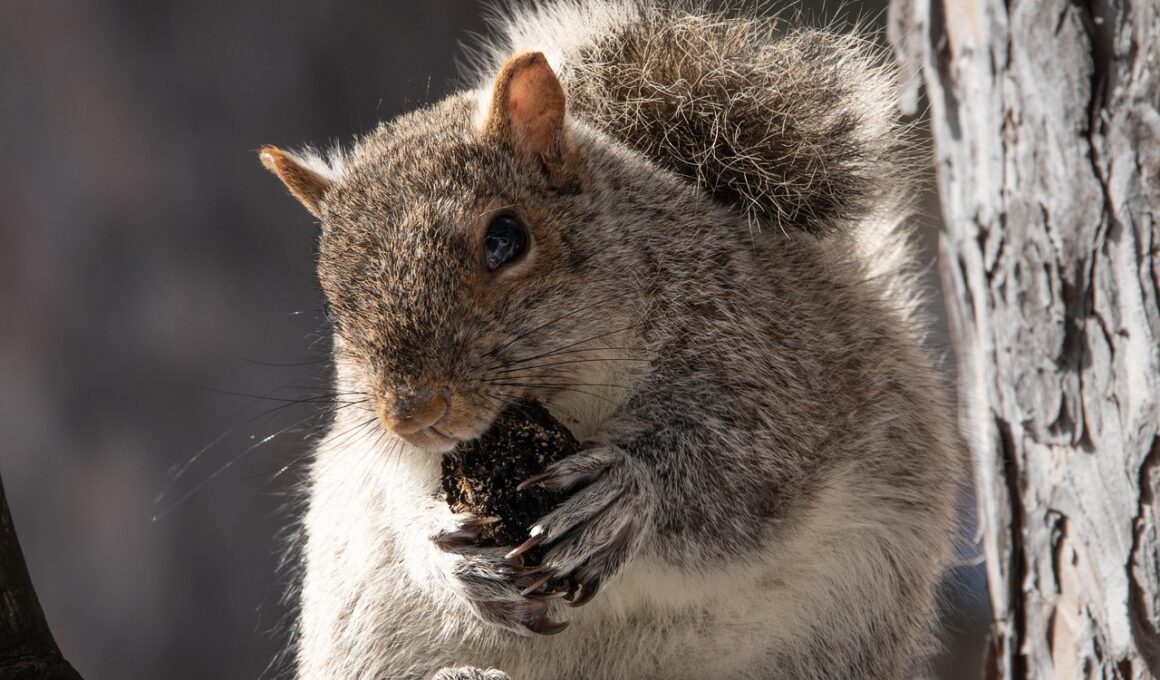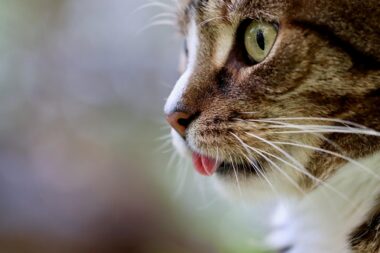The Toxicity of Macadamia Nuts for Cats: What You Should Know
When it comes to keeping our feline friends safe, understanding what human foods pose risks is essential. Macadamia nuts, a popular snack for many, are significantly harmful to cats. These nuts, while safe for humans, contain compounds that can induce reactions in our pets, leading to symptoms that may be distressing for both the cat and their owner. Often, pet owners are unaware of the toxic potential of certain foods and assume all human foods are safe for their pets. The reality is far more complicated. Cats have different metabolic processes than humans, making them particularly vulnerable to certain substances that we might consume without a second thought. Immediate reactions can include lethargy, vomiting, and tremors. These symptoms highlight the critical importance of preventing access to macadamia nuts and educating other family members about the dangers. If a cat mistakenly ingests macadamia nuts, swift veterinary action may be necessary. Awareness of these details is vital for the health and safety of your feline companions.
When considering what foods to avoid for your cat, it’s imperative to conduct thorough research. Among common human foods, macadamia nuts rank high on the list of items to keep out of reach. Unfortunately, many pet owners often think that since these nuts are a healthy snack for humans, they would be safe for their cats. This misconception can lead to dire consequences. Clinical signs of macadamia nut toxicity can manifest within 12 hours after ingestion, making it crucial for owners to act fast. Signs often include vomiting, tremors, and hyperthermia. Although not all cats will experience severe symptoms, each cat’s reaction can vary significantly, meaning that no risk should be taken. Healthy and curious cats might be more susceptible to exploring your kitchen counters, so it’s important to be proactive in cat-proofing your home. Macadamia nuts can be an enticing treat if left unattended. As responsible pet owners, educating ourselves and others about food safety and the specific needs of our pets is part of ensuring their health and well-being.
Knowing the legal classification of food items that can be toxic to pets is an essential part of pet ownership. According to veterinary studies and guidance from animal safety organizations, macadamia nuts are classified as toxic to cats. While they may not boast the same level of danger as chocolate or certain grapes, their effects should not be underestimated. Symptoms of toxicity can hinder a cat’s usual playful demeanor and can sometimes lead to more severe health repercussions. The molecular structure of macadamia nuts does not digest well for cats, which can cause gastrointestinal upset and systemic reactions. Nevertheless, as with any toxic potential, early intervention is key. If a cat displays unusual behaviors after suspected ingestion of macadamia nuts, consult your veterinarian immediately. They will often recommend monitoring for symptoms and may provide instructions on potential treatments that help alleviate the cat’s discomfort. Ensuring your cat remains healthy often involves knowledge of safe food sources while steering clear of potential toxins like macadamia nuts that can endanger their health.
Living healthily with a pet means understanding their dietary requirements and the risks associated with various foods. Many owners may find themselves unsure about what constitutes a safe treat for their feline companions. Macadamia nuts are just one of the many human foods that can pose threats to cats. Even small amounts can be harmful, so careful monitoring of what’s available to your pet is essential. In fact, being proactive in this regard can prevent emergencies before they happen. There are many cat-friendly alternatives available that offer nutritional benefits without the risks. Maintaining a balanced diet for your cat primarily consisting of high-quality cat food is the best approach. Always ensure that any supplements, snacks, or treats are specifically designed for cats to avoid accidental toxic exposure. The marketing of some human snacks can be misleading, as they might appear appealing without addressing the special needs of your pet. Dedicated pet stores and websites can provide insights and recommendations for safe snacks. Keeping your cat’s health as a priority means being informed and vigilant about the food they consume.
Consult Your Veterinarian
If there’s ever a question about your cat’s diet, consult your veterinarian. No two pets are the same, and individual health conditions vary widely. Your vet has the training and knowledge to provide specific guidance on what foods to avoid for your specific cat’s health needs. Any significant changes to your pet’s diet should involve an open discussion with a professional. It is essential to track your cat’s reactions to new foods carefully. By maintaining a list of both safe and harmful foods, pet owners can make informed decisions about dietary changes. Additionally, registries of toxic foods can often be found on veterinary clinic websites or pet safety organizations, serving as reference materials. This simple step by step process enables you to make quick decisions should your cat accidentally ingest a harmful food item. Remember to share this information with others who care for your cat, ensuring consistent care practices regardless of the caretaker. Overall, discussing dietary needs and harmful foods with your veterinarian ensures your cat remains healthy and happy.
It’s notable how easily accessible information about pet safety has become recently. The internet is rife with resources listing foods deemed safe or toxic for pets. Despite this, misinformation lingers, and pet owners might not always have the necessary critical thinking skills to differentiate fact from harmful myths. Engaging with reputable sources such as veterinary clinics, specialized animal care websites, and scientific research can help mitigate misunderstandings. Social media also plays a role in spreading information, some of which could be misleading. A responsible approach to finding pet care information leads to the well-being of your cat and should never be taken lightly. For instance, sharing experiences with other pet owners can create a sense of community, but it’s equally important to ascertain the reliability of shared information. Building a foundation of trustworthy sources can significantly enhance your overall understanding of your cat’s dietary needs while steering clear of any potentially toxic substances like macadamia nuts. Excellence in pet care not only involves compassion but also staying informed and advocating for your cat’s health.
In summary, the health and safety of your cat depend largely on the food they consume. Macadamia nuts serve as a crucial reminder of the potential dangers embedded in some human foods. We cannot assume that every delightful snack made for us is harmless to our furry companions. Gaining awareness around food safety and the specifics of feline nutrition will significantly improve your ability to protect your pet from hazardous food items. The veterinary community consistently emphasizes the need for education on this matter, urging pet owners to take a proactive stance in understanding possible risks. Careful monitoring of your cat’s environment and diet can prevent many health issues associated with toxic food. Remember to have open discussions with your veterinarian whenever uncertainties arise, as their guidance is indispensable. We ultimately share a responsibility for our pets’ wellbeing. Maintaining a healthy home for our cats revolves around knowledge of what is safe and the encouragement of safe pet ownership. As we learn, our pets will thrive, and our bond will only grow stronger.
In conclusion, levels of safety can be considerably enhanced with knowledge about cat dietary restrictions. Macadamia nuts exemplify the complexity of feline nutrition and the reality of potential risks from seemingly benign human foods. Comprehensive understanding allows cat owners to preemptively mitigate risks while ensuring their pets’ wellbeing. Following guidelines can facilitate a healthy balance in your cat’s food selection, sparing them from unfortunately preventable health hazards. Each cat presents a unique friendship, requiring tailored attention to their dietary needs. Always err on the side of caution. Fostering a safe and nurturing environment significantly enhances the quality of life for your beloved feline friends. Research makes room for informed decisions. Whether choosing to share a snack with your furry companion or strictly maintaining their feeding habits, keeping a watchful eye on their diet is vital. Through responsible pet ownership and continuous education on food safety, we can ensure our cats lead fulfilling, healthy lives free from the dangers posed by toxic human snacks, including macadamia nuts. Your proactive role in safeguarding your pet’s health is paramount.





